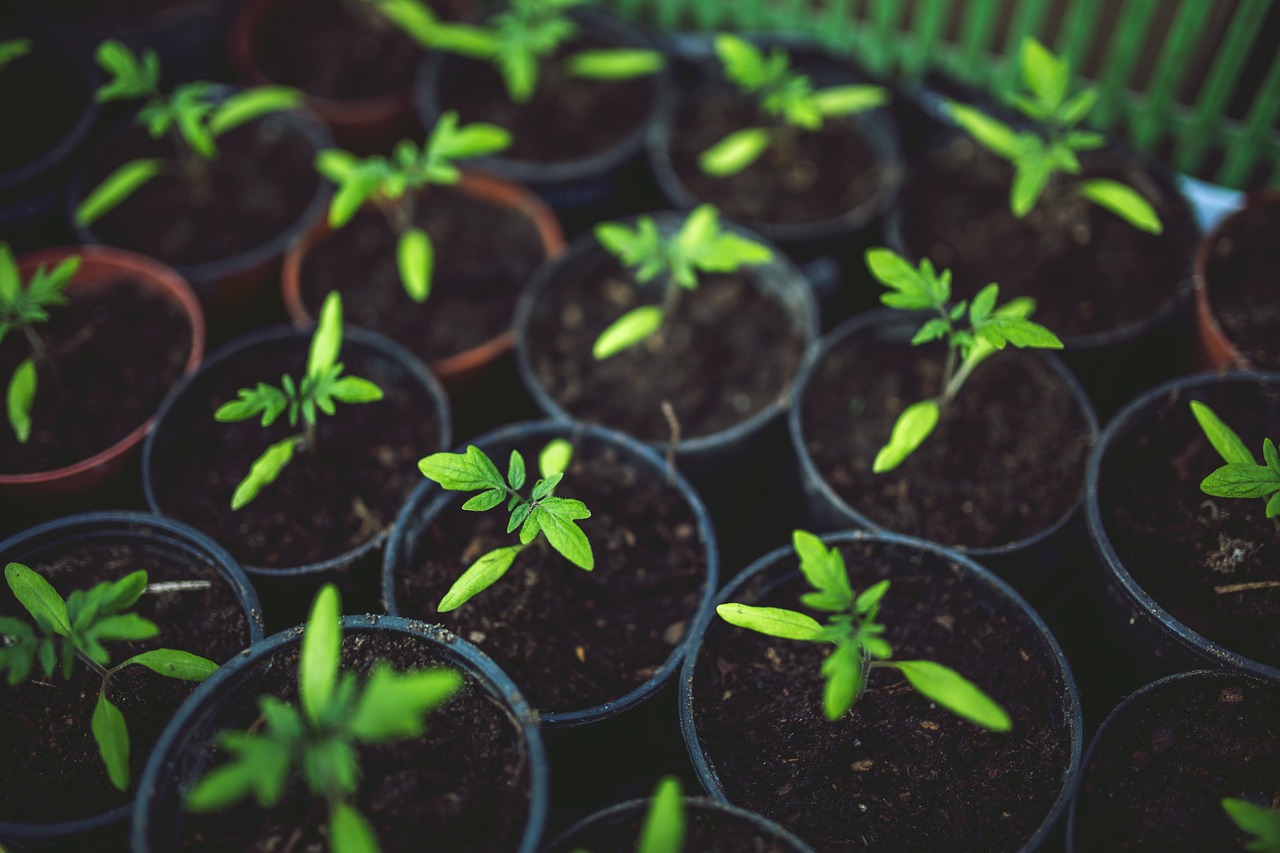10 Tips for Sustainable Family Practices
When it comes to sustainable family practices, making small changes can lead to significant positive impacts on the environment and future generations. By incorporating eco-friendly habits into daily routines, families can play a crucial role in reducing their carbon footprint and promoting a more sustainable lifestyle.
One key tip for sustainable family practices is to focus on reducing energy consumption. Simple actions such as turning off lights when not in use, utilizing energy-efficient appliances, and adjusting the thermostat can go a long way in lowering energy usage and cutting down on utility bills.
Another practical suggestion is to consider growing your own food. Whether it's starting a small vegetable garden in the backyard or growing herbs indoors, involving children in the process can help them appreciate the value of fresh, homegrown produce while reducing the family's reliance on store-bought items.
Waste reduction is also essential in sustainable family practices. Encouraging recycling, composting organic waste, and using reusable items like water bottles and shopping bags can significantly minimize waste production and promote a more eco-conscious lifestyle within the household.
Choosing sustainable products is another impactful way to support environmental conservation efforts. Opting for eco-friendly options such as organic foods, biodegradable cleaning supplies, and reusable household items not only benefits the planet but also encourages companies to prioritize sustainability in their practices.
When it comes to transportation, families can make a difference by using alternative modes of travel. Whether it's walking, biking, carpooling, or utilizing public transportation, reducing reliance on cars can help lower carbon emissions and promote a healthier lifestyle for all family members.
Conserving water is also crucial for sustainable family practices. Implementing water-saving techniques like fixing leaks, installing low-flow fixtures, and utilizing rainwater for gardening can help reduce water waste and lower utility costs over time.
Education and involvement of children are key aspects of fostering sustainable values within the family. By teaching kids about environmental issues, engaging them in eco-friendly activities, and setting a positive example, parents can instill lifelong values of sustainability and conservation in the younger generation.
Supporting local and sustainable businesses is another way for families to contribute to a greener future. Choosing to buy from farmers' markets, local shops, and businesses that prioritize sustainability and ethical practices helps promote a more environmentally responsible economy.
Planning eco-friendly family activities is a fun and engaging way to promote sustainability within the household. Whether it's participating in outdoor activities like hiking, camping, or beach cleanups, or joining community events that raise awareness about environmental conservation, these activities can bring the family closer while making a positive impact on the planet.

Reduce Energy Consumption
Reducing energy consumption is a key step in creating a more sustainable family lifestyle. By making simple changes in our daily habits, we can not only lower our utility bills but also contribute to a healthier environment for future generations. One effective way to achieve this is by turning off lights and electronics when not in use. This small action can add up to significant energy savings over time. Additionally, using energy-efficient appliances can make a big difference in reducing electricity usage. These appliances are designed to consume less energy while still providing the necessary functionality for your family's needs.
Another practical tip to reduce energy consumption is to adjust the thermostat in your home. By setting the temperature a few degrees lower in the winter and higher in the summer, you can cut down on heating and cooling costs. This not only saves energy but also helps lower your carbon footprint. Teaching children about the importance of these energy-saving practices can also have a lasting impact. Involving them in turning off lights or adjusting the thermostat can help them understand the value of conservation and sustainability from a young age.
Furthermore, considering the use of natural light during the day can reduce the need for artificial lighting, further cutting down on energy usage. Making the most of daylight hours not only saves energy but also creates a warm and inviting atmosphere in your home. By implementing these energy-saving strategies, families can make a significant difference in reducing their environmental impact and promoting a more sustainable way of life.

Grow Your Own Food
When it comes to sustainable family practices, growing your own food can be a rewarding and environmentally friendly activity. By starting a small vegetable garden in your backyard or even growing herbs indoors, you not only provide your family with fresh, nutritious produce but also reduce your reliance on store-bought items. Imagine the satisfaction of serving a salad made with homegrown lettuce or adding freshly picked herbs to your favorite dishes. It's a hands-on way to connect with nature and teach children about the value of food production.
Additionally, growing your own food can be a fun and educational experience for the whole family. Children can learn about the lifecycle of plants, the importance of soil health, and the impact of weather conditions on crop growth. It's a great way to foster a sense of responsibility and appreciation for the environment. In a world where food often travels long distances before reaching our plates, cultivating your own fruits and vegetables can also reduce the carbon footprint associated with transportation and packaging.
Moreover, home gardening allows you to have control over the use of pesticides and fertilizers, enabling you to opt for organic and environmentally friendly practices. You can compost kitchen scraps to create nutrient-rich soil, use natural pest control methods, and conserve water by implementing efficient irrigation techniques. By prioritizing sustainability in your food production, you contribute to a healthier ecosystem and support biodiversity in your own backyard.
Imagine the joy of harvesting ripe tomatoes, crisp cucumbers, or vibrant bell peppers that you nurtured from seeds. The sense of accomplishment and connection to the Earth that comes from growing your own food is truly priceless. Whether you have a spacious garden or just a few pots on a windowsill, the act of cultivating plants can bring the family together, promote healthy eating habits, and inspire a deeper respect for the environment.

Practice Waste Reduction
When it comes to sustainable family practices, one of the key aspects to focus on is waste reduction. By actively minimizing the amount of waste generated within the household, families can contribute significantly to environmental conservation efforts. This involves instilling habits that prioritize recycling, composting, and the use of reusable items.
Encouraging the separation of recyclable materials from general waste is a simple yet effective way to kickstart waste reduction at home. Setting up designated recycling bins for paper, plastic, glass, and metal can make it easier for family members to dispose of items responsibly.
Composting organic waste, such as fruit and vegetable scraps, not only diverts materials from landfills but also creates nutrient-rich soil for gardening. Families can explore composting options, whether through backyard compost bins or indoor composting systems, to turn food waste into a valuable resource.
Another essential aspect of waste reduction is the conscious choice to use reusable items in daily life. Opting for refillable water bottles, eco-friendly shopping bags, and durable containers for food storage can significantly decrease the reliance on single-use plastics and disposable products.
Additionally, families can consider reducing food waste by planning meals effectively, storing leftovers properly, and being mindful of portion sizes. By minimizing food waste, households not only save money but also reduce the environmental impact associated with food production and disposal.
Teaching children about the importance of waste reduction and involving them in eco-friendly practices can foster a sense of responsibility towards the environment from a young age. Engaging kids in activities like upcycling crafts, organizing neighborhood cleanups, or creating a composting routine can make waste reduction a fun and educational family endeavor.

Choose Sustainable Products
When it comes to making environmentally conscious choices for your family, selecting sustainable products is a key step in reducing your carbon footprint and supporting eco-friendly practices. By opting for organic foods, you not only prioritize your family's health but also contribute to the well-being of the planet. These foods are grown without synthetic pesticides and fertilizers, promoting a healthier ecosystem.
Another essential aspect of choosing sustainable products is selecting biodegradable cleaning supplies. Traditional cleaning products often contain harmful chemicals that can pollute water sources and harm aquatic life. By switching to biodegradable options, you can effectively clean your home while minimizing environmental impact.
Additionally, investing in reusable household items is a simple yet impactful way to reduce waste. Items like reusable water bottles, shopping bags, and food containers help decrease single-use plastic consumption. Not only does this benefit the environment by reducing landfill waste, but it also saves you money in the long run by eliminating the need for constantly purchasing disposable items.
When choosing sustainable products, consider the entire lifecycle of the item, from production to disposal. Look for certifications and labels that indicate a commitment to sustainability, such as fair trade certifications or recycled materials. By being mindful of the products you bring into your home, you can actively contribute to a more sustainable future for your family and the planet.

Use Alternative Transportation
Incorporating sustainable practices into family life is crucial for the environment and future generations. Here are 10 practical tips to help families adopt eco-friendly habits and reduce their carbon footprint.
Simple steps like turning off lights when not in use, using energy-efficient appliances, and adjusting the thermostat can significantly lower energy consumption and utility bills.
Starting a small vegetable garden or growing herbs indoors can teach children about the value of fresh, homegrown produce and reduce the family's reliance on store-bought items.
Encourage recycling, composting, and using reusable items like water bottles and shopping bags to minimize waste production and promote a more sustainable lifestyle.
Opt for eco-friendly products such as organic foods, biodegradable cleaning supplies, and reusable household items to support companies that prioritize sustainability.
When it comes to getting around, there are plenty of eco-friendly options to consider. Walking or biking not only reduces carbon emissions but also promotes a healthier lifestyle for the family. Carpooling with neighbors or friends can make commuting more sustainable and enjoyable. Additionally, using public transportation whenever possible not only helps in reducing the family's carbon footprint but also allows for a more relaxed travel experience without the stress of driving. Embracing alternative transportation methods can be a fun and rewarding way to contribute to a greener environment.
Implement water-saving techniques like fixing leaks, using low-flow fixtures, and collecting rainwater for gardening to reduce water waste and lower utility costs.
Teach kids about environmental issues, involve them in eco-friendly activities, and lead by example to instill lifelong values of sustainability and conservation.
Choose to buy from local farmers' markets, shops, and businesses that prioritize sustainability, ethical practices, and environmental responsibility.
Engage in outdoor activities like hiking, camping, or beach cleanups, and participate in community events that promote environmental awareness and conservation efforts.
Q: How can I get my family excited about adopting sustainable practices?
A: Get creative! Make it a game, involve them in decision-making, and show them the positive impact their actions can have on the environment.
Q: Is it expensive to implement sustainable practices in a family setting?
A: Not necessarily. Many eco-friendly habits can actually save money in the long run, such as reducing energy and water consumption.
Q: How can I deal with resistance from family members who are hesitant to change?
A: Start small, lead by example, and have open discussions about the importance of sustainability for the future of the planet and future generations.

Conserve Water
Water conservation is a critical aspect of sustainable family practices that can have a significant impact on the environment and household expenses. By implementing simple yet effective strategies, families can reduce water waste and promote a more eco-friendly lifestyle.
One practical way to conserve water is by fixing any leaks in faucets, toilets, or pipes promptly. Even a small leak can waste a significant amount of water over time, so regular maintenance can help prevent unnecessary water loss.
Another effective method is to install low-flow fixtures in bathrooms and kitchens. These fixtures are designed to reduce water usage without compromising performance, allowing families to save water with every use.
Collecting rainwater for gardening purposes is not only environmentally friendly but also a great way to conserve water. Rain barrels can capture rainwater runoff from roofs, which can then be used to water plants and gardens, reducing the need for additional water from the tap.
Additionally, encouraging shorter showers and turning off the tap while brushing teeth or washing dishes are simple yet impactful habits that can contribute to water conservation efforts. By being mindful of water usage in daily activities, families can make a meaningful difference in preserving this precious resource.
Remember, every drop counts when it comes to water conservation. By incorporating these practices into daily routines, families can play a vital role in protecting the environment and ensuring a sustainable future for generations to come.

Educate and Involve Children
Incorporating sustainable practices into family life is crucial for the environment and future generations. Here are 10 practical tips to help families adopt eco-friendly habits and reduce their carbon footprint.
When it comes to building a sustainable future, educating and involving children is key. By teaching kids about environmental issues and involving them in eco-friendly activities, families can instill lifelong values of sustainability and conservation.
One effective way to educate children about sustainability is through hands-on activities. For example, setting up a small compost bin in the backyard and involving kids in the process of composting can teach them about the importance of reducing waste and recycling organic materials.
Additionally, organizing nature walks or visits to local parks can help children develop a deeper appreciation for the environment. Encourage them to observe and learn about different plants, animals, and ecosystems, fostering a sense of connection to nature.
Furthermore, incorporating sustainability lessons into everyday routines can make a lasting impact on children. For instance, involve kids in household tasks like sorting recyclables, turning off lights, and conserving water. By actively participating in these activities, children learn by example and understand the importance of sustainable practices.
Moreover, discussing environmental issues with children in an age-appropriate manner can raise their awareness and empower them to take action. Engage in conversations about topics like climate change, pollution, and wildlife conservation, encouraging kids to ask questions and think critically about their impact on the planet.
By educating and involving children in sustainable practices, families not only contribute to a greener future but also nurture a sense of responsibility and stewardship towards the environment in the next generation.
1. How can families reduce energy consumption at home?
2. What are some eco-friendly alternatives to everyday household products?
3. How can children actively participate in waste reduction efforts?
4. Why is supporting local and sustainable businesses important for the environment?
5. What are some fun and educational eco-friendly activities families can engage in together?

Support Local and Sustainable Businesses
Supporting local and sustainable businesses is a vital step towards creating a more environmentally conscious community. By choosing to buy from local farmers' markets, shops, and businesses that prioritize sustainability, ethical practices, and environmental responsibility, families can make a significant impact on reducing their carbon footprint and supporting the local economy. When you purchase goods from local businesses, you are not only reducing the carbon emissions associated with transportation but also fostering a sense of community and connection with the people behind the products.
Local businesses often source their products locally, which means fewer resources are used in transportation and storage compared to large corporations that rely on long supply chains. By supporting these businesses, families can contribute to the preservation of local ecosystems and promote sustainable agricultural practices. Additionally, local businesses are more likely to invest in the well-being of their employees and the community, creating a positive ripple effect that benefits everyone involved.
When choosing to support sustainable businesses, look for certifications and labels that indicate their commitment to environmental stewardship and ethical practices. By prioritizing products that are produced with minimal impact on the environment, families can align their values with their purchasing decisions and encourage more businesses to adopt sustainable practices. Supporting local and sustainable businesses is not just about making a one-time purchase; it's about building long-lasting relationships with businesses that share your commitment to creating a greener, more sustainable future for generations to come.

Plan Eco-Friendly Family Activities
When it comes to planning eco-friendly family activities, the options are as vast as the ocean and as refreshing as a cool breeze on a summer day. Imagine embarking on a nature hike with your loved ones, exploring the wonders of the great outdoors while learning about the importance of environmental conservation. The experience not only strengthens family bonds but also nurtures a deep connection with the natural world.
Alternatively, you can organize a family camping trip, where you can unplug from the hustle and bustle of daily life and immerse yourselves in the beauty of nature. Gather around a campfire, share stories under the starlit sky, and create lasting memories that are as sustainable as they are unforgettable.
For a more hands-on approach, consider participating in a beach cleanup initiative as a family. By picking up litter and debris along the shoreline, you not only contribute to a cleaner environment but also raise awareness about the impact of plastic pollution on marine life. It's a tangible way to make a difference while enjoying quality time with your family.
Engaging in community events focused on environmental awareness is another fantastic way to bond as a family while supporting sustainable practices. Whether it's joining a local tree-planting campaign or attending a green fair, these activities offer opportunities to learn, connect, and inspire positive change within your community.
Remember, the key to planning eco-friendly family activities is to infuse them with a sense of purpose and fun. By combining education with enjoyment, you can cultivate a shared commitment to sustainability that will resonate with your family for years to come.
Frequently Asked Questions
- What are sustainable family practices?
Sustainable family practices are habits and behaviors that aim to minimize negative impacts on the environment and promote long-term ecological balance. These practices involve making conscious choices to reduce energy consumption, waste production, and reliance on non-renewable resources.
- How can I involve my children in sustainable practices?
You can involve your children in sustainable practices by teaching them about the importance of environmental conservation, engaging them in eco-friendly activities such as recycling and gardening, and setting a positive example through your own sustainable actions.
- Why is it important to support local and sustainable businesses?
Supporting local and sustainable businesses is crucial for promoting community resilience, reducing carbon footprint associated with transportation, and encouraging ethical and environmentally responsible production practices. By choosing to buy from such businesses, you contribute to a more sustainable economy and environment.



















